The knowledge of the mothers on immunization - a public health intervention that has greatly reduced mortality and morbidity globally- is very vital as they play a great role in child care. Their ability to have the right knowledge will enhance their practice and attitude toward immunization. This cross- sectional descriptive study was conducted in Khartoum State Ummbada locality (Albugaa) in period from 5th February to 6th March-2017. Aimed to study the knowledge, attitudes and practice of mothers with children under five years toward vaccination, the study was included 384 mother which have children under five years, divided into six area. The data was collected through questionnaire and interview, and data was analyzed by handily an excel program. The study shown that the majority 90% of mothers heard about the hear of vaccination, about 52% of mothers had poor knowledge about number of the routine doses which given to the child less than two years, 55% of mother had negative attitudes toward vaccination of child in vaccination campaigns, and 66% of mothers good practice toward their treated with the side effects of vaccines. We recommended to Ministry of Health of Khartoum State should be conducting health education campaigns about vaccination for mothers continuously through media and Provided mothers with vaccination booklets explain the importance of vaccination, routine doses, importance of vaccination card and how to manage the side effects of vaccination, and obligating all health centers to provided health instructions about vaccination for mothers.
mothers, vaccination, awareness
The World Health Organization (WHO) has defined immunization as the process whereby a person is made immune or resistant to an infectious disease, typically by the administration of a vaccine. These vaccines help to stimulate the body’s own immune system to protect the person against subsequent infection or disease [1].
Immunization therefore depicts the ability to develop immunity. Immunity being the state of having sufficient biological defenses to avoid infection, disease, or other unwanted biological invasion [2]. Immunity also depicts the capability of the body to resist harmful microbes from gaining access into it.
Vaccination is one of the most cost-effective interventions to prevent major illnesses that contribute to child mortality in the country, particularly in environments where malnourished children, overcrowding, poverty and illiteracy reign. Knowledge (K), positive attitudes (A) and appropriate perceptions (P) about vaccination hence become one of the main tools to reduce the incidence of vaccine preventable diseases (VPDs) thus reducing childhood mortality and morbidity. In our society, a large chunk of the population lives in rural areas, where mothers are illiterate and have numerous myths about vaccination; this results in children being unimmunized and susceptible and hence causes a serious policy concern. Evidence about the inequalities in vaccination practices exist even though childhood immunization has been an important part of maternal and child health services since the 1940 [3].
In 2010 it was estimated that 1.7 million children died from vaccine preventable diseases [4]. It was also noted that 19.3 million children had been incompletely vaccinated, leaving them susceptible to vaccine preventable disease mortality and morbidity. Approximately 50% of all under vaccinated children live in three countries, India being one of them.
Justification of study
Immunization which has greatly reduced the burden of infectious disease ؛ prevent illness ،disabilities، and death frames the vaccine preventable disease including: Measles, Pertussis, Diphtheria, ، Rubella، polio ، and Tetanus. [5].
Immunization child significantly reduce cost of treating disease ، thus providing healthy childhood and reducing poverty and suffering.
More than 720,000 under one-year children in Sudan will this year be vaccinated against meningitis through the routine immunization system
A mini catch-up campaign will be conducted in September 2016 targeting 5.2 million 1_5 years’ old children born after the mass meningitis vaccination campaign carried out in 2012_2013 to further reduce the threat of meningitis in Sudan [6].
General objective: To study the Knowledge Attitude and Practices (KAP) of Mother which have children under five years toward Vaccination children Ummmbada locality.
Specific objective: To identify Knowledge of mothers about the vaccination of children under five years.
To investigate attitudes of mothers with child in vaccine preventive disease.
To know the practices of mothers about vaccination of children under five years.
Study design
This is descriptive cross-sectional study, aimed to study of Knowledge Attitude and practice of mothers which have children under five years toward vaccination.
Study area
Khartoum is the capital of Sudan and it is one of the (18) State of Sudan. Consist of 7 localities, (al–Khartoum locality, al- Khartoum Bahri locality, Omdurman locality, JabalAwliya locality, Sharq an-nil locality, Ummmbadda locality and Karari locality). Its area is (22.142km)’ and population (5,274,321 in 2008 census).It is lies between longitudes 31.5to 34E and latitudes 15to 16N .the River Nile is divided Khartoum State in the three part, Khartoum locality, Khartoum Bahri locality and Omdurman locality and its neighbor with River Nile state in the north _ east, in the north- west by the Northern State, in the east and south east by the state of Kassala, Gadaref and Gezira and in the west by North Kurdofan. The city is located in the middle of Sudan at the confluence of the White Nile and the Blue Nile, where the two rivers unite to form the River Nile.
Omdurman is the largest city in Sudan and Khartoum State lying on the western bank of the River Nile .opposite in capital Khartoum Omdurman has population of 2.395.195(2008) and the national center of commerce with Khartoum and Bahri.
Study population
The target population consist of mothers have children under five years in study area.
Sample Size
According to the total number of population in albugaa health district 384 using this formula
n= Z² Pq
e ²
n: the sample size.
z: standard normal deviate at confidence level 1.96.
p: the estimation not available then p= (50%)
q: 1-p
e: marginal error equal (0.05)
n = (1.96)²x50x50=384
(0.05)2
The sample selection divided into six areas, the first house was selected by random sample distribution technique and the second house was selected by add interval and applying this method into all study area.
Data collection
Questionnaire: The questionnaire was designed by researchers to purpose of obtain information about knowledge, attitude and practice of mothers which have children less than five years toward vaccination
Interviews: The interview was designed by researchers to obtain information about vaccination from staff of the Ministry of health of Khartoum State and Ummbada locality information face to faceannex, no (2).
Data analysis: Data was analyzed by handily an excel program present Figures (1-8) and Tables (1-6).
The result shown that most mothers have children less than five years their age between 18 -25 (42%) see in figure 1. This result agrees with the study done in Almygoma health center by Butal Hassan Mohammed, 2013 which proved that the age of mothers less than 25year (44%).
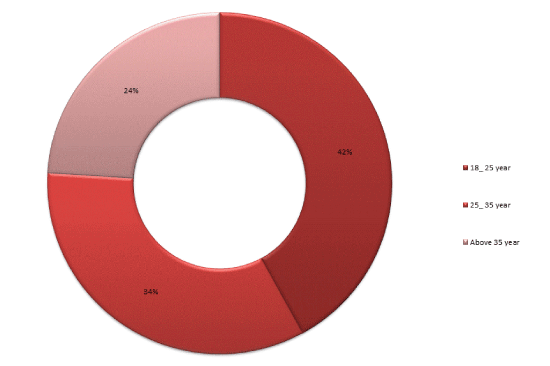
Figure 1. Show the mothers according to age _ Ummbada locality _Albugaa 2017 n=384
The result shown that the most mothers education level was basis school (30%) see in figure 2, this education level of mothers can affected on their knowledge which reflecting in their attitudes and practice and this result agree with the study done in Alkalakla by Eman Ali which shown that less than half of mothers (41%) was basis
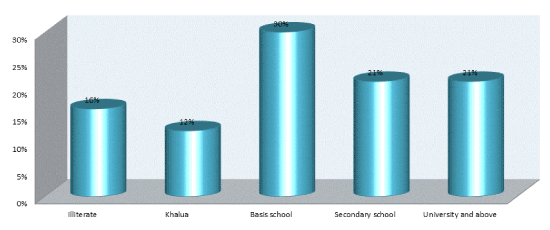
Figure 2. Show the education level of mother’s children _Ummbada locality _Albugaa 2017 n=384
The result revealed that 39% of families belonged to income level from 500-1000SD see in table 1, this can affected on the transportation to going to the health center for receiving the vaccination doses and may be reason for mothers to not vaccinate their children at specified time of vaccination.
Table 1. Sample distribution techniques
S.no |
Study area |
Population number |
Sample size |
% |
1. |
Algoads |
8500 |
52 |
13 |
2. |
Alhikma 10 |
7920 |
49 |
13 |
3. |
Albohira |
6900 |
42 |
12 |
4. |
Alsariha |
13856 |
85 |
22 |
5. |
Alrahma |
10400 |
64 |
17 |
6. |
Alryanalhocomi |
14956 |
92 |
24 |
Total |
|
62532 |
384 |
100 |
The result revealed that the majority of mothers (90%) heard about vaccination see in figure 3, this result similar to study done in India by Mrs. Sujathan in 2007 that shown 86% of mothers heard of immunization.
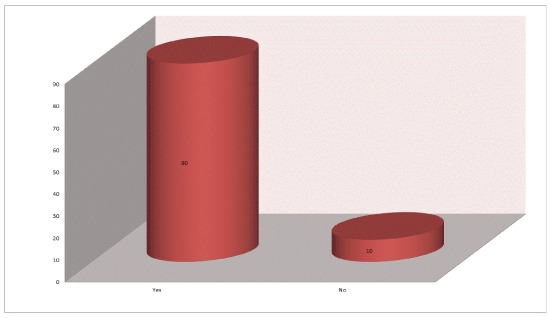
Figure 3. Show the mothers heard about vaccination _Ummbada locality _Albugaa 2017 n=384
The result revealed the mothers excellent knowledge about importance of vaccination which it is protect from diseases and increasing immunity of child (55%) this reflect role of media in the increase the knowledge see in figure 4, this result similarly to report by Angelliloin 2003 in Nigeria who stated that majority (75%) of mothers had high knowledge about vaccination importance.
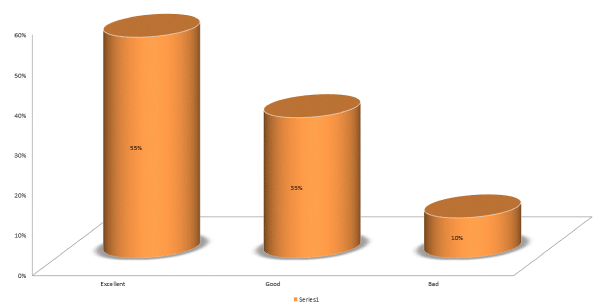
Figure 4. Show the mothers knowledge about importance of vaccination_ Ummbada locality_ Albugaa 2017 n=347
The result revealed 40% from mothers had good knowledge about vaccine preventive diseases see in table 2, this result similar with study which done in Dar elsalam by Khalda Osman in 2013 proved that 52% of mothers had good knowledge about vaccine preventive diseases.
Table 2. Show the Family income-Ummbada locality-Albugaa 2017 n=384
Family income |
No |
% |
A_ 500_1000s |
149 |
39 |
B_ 1000_1500 |
132 |
34 |
C_ more than 1500 |
103 |
27 |
Total |
384 |
100 |
The result shown that the majority of mothers (90%) their children have vaccination card see in figure 5, this result agree with the slaying of director of vaccination at Ministry of Health of Khartoum state in important of vaccination card.
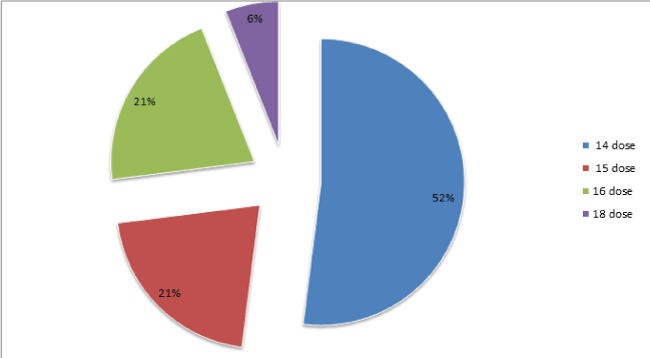
Figure 5. Show the mothers knowledge about number of the routine dose _ Ummbada locality _Albugaa _2017
The result shown that more than half of mothers (52%) had poor knowledge about number of the routine doses which given to the child less than two years see in figure 6, this refer to their care less about vaccination card or loss of it.
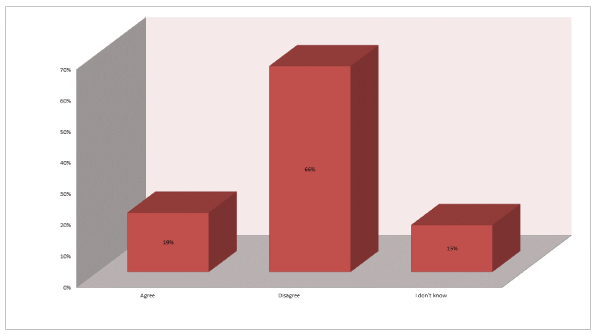
Figure 6. Show the mothers attitude toward Completion of all doses _ Ummbada locality _ Albugaa _ 2017
The result shown that more than half of mothers(66%) had positive attitudes toward Completion of all doses of vaccination children is not necessary see in figure 7, this result similar to study done in Addis Ababa by Edrees Ali in 2011which revealed that 62% of mothers agree with important of completion of compulsory doses of vaccination.
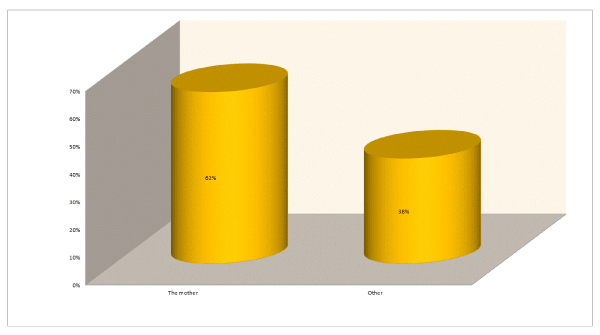
Figure 7. Show the mothers practice toward who is carry the child to the health center _ Ummbada locality _ Albugaa _2017
The result show that of mothers (40%) of mothers negative attitudes toward baby can be left without vaccination and no problem, see in table 4, this result agree with study done in Egypt by Ahmed in 2005 which shown 73% of mothers agree that child without vaccination can expose to childhood diseases.
Table 3. Show the mother’s knowledge of vaccine preventive diseases-Ummbada locality-Albugaa 2017 n=347
Degree of knowledge |
No |
% |
Excellent |
93 |
27 |
Good |
140 |
40 |
Weak |
114 |
33 |
Total |
347 |
100 |
Table 4. Show the mothers knowledge about important of vaccination card-Ummbada locality-Albugaa-2017 n=312
Degree of mothers knowledge |
No |
% |
Excellent |
105 |
34 |
Good |
72 |
23 |
Weak |
135 |
43 |
Total |
312 |
100 |
The result shown that good practice of mothers toward vaccination 67% of mothers go with their child for vaccination at specified time, see in table 5, this result similar to study done by Shamila Hamid in North Kashmir in 2011 about immunization of children ,the study revealed that all the mothers (100%) had good practice toward immunization.
Table 5. Show the mothers attitude toward baby left without vaccination-Ummbada locality-Albugaa-2017 n=347
The mothers attitude |
No |
% |
Agree |
51 |
15 |
Disagree |
208 |
60 |
I don’t know |
88 |
25 |
Total |
347 |
100 |
Table 6. Show the mothers practice toward vaccination at specified time-Ummbada locality-Albugaa-2017 n=347
The mothers practice |
No |
% |
Yes |
232 |
67 |
No |
115 |
33 |
Total |
347 |
100 |
The result shown 62% of mothers had good practice toward mother carry the child to the health center see in figure 8, refer to their cared about vaccination and the existence of mother during child immunization for receiving of health instructions which provided in health centers about immunization.
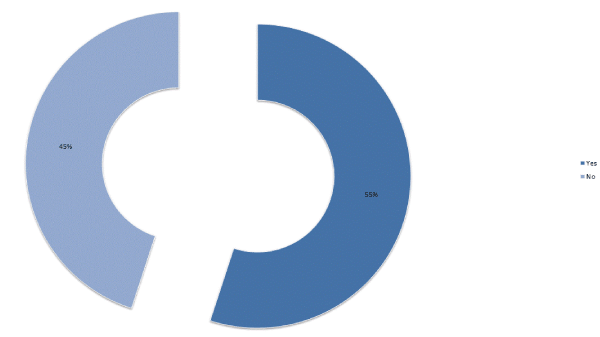
Figure 8. Show mothers practice toward forgotten the vaccination card or lost _ Ummbada locality _ Albugaa 2017 n=347
The result revealed that 55% of mothers had bad practice toward they forgotten and loss of vaccination card, see in figure 9, this result similar to study done in Almygoma health center by BatulHassan in 2013 which stated that 47% of mothers loss vaccination cards of their children.
The descriptive cross-sectional study conducted among mothers with children years in Ummbada locality (albugaa) to study on knowledge, attitude and practice of mothers toward vaccination of children under five years.
- The study revealed that the majority of mothers heard about vaccination (90%).
- The result revealed 40% from mothers had good knowledge about vaccine preventive diseases
- The result shown that more than half of mothers (52%) had poor knowledge about number of the routine doses
- The result show that of mothers (40%) of mothers negative attitudes toward baby can be left without vaccination
- The study shown that most of mothers67% had good practice toward go with their child for vaccination at specified time.
- The study revealed that more than half 55% of mothers have bad practice toward they forgotten and loss of vaccination card.
- Ministry of Health of Khartoum State should be conduct health education campaigns about vaccination for mothers continuously through media.
- Ministry of Health of Khartoum State must be held immunization sessions for mothers which have less than five years children as well as social group meetings to exchange information at maternal and child health centers.
- Ministry of Health of Khartoum State should be Provide mothers with vaccination booklets explain the importance of vaccination, importance of vaccination card, routine doses and how to manage the side effects.
- Ministry of Health of Khartoum State must be obligating all health centers to provided health instructions about vaccination for mothers.
- The health workers in health centers should be explain to mothers the necessity of vaccinated of child in the vaccination campaigns.
- WHO (2016) World Immunization Week.
- World Health Organization (2012) Global Vaccine Action Plan 2011-2020.
- Batul HM (2013) Assessment of mother's knowledge and expectation regarding child vaccination. Sudan- University of Bahri- College of Nursing.
- Park (2013) Preventive and Social Medicine 22 (edn). 138, 144, 151, 154, 156, and 283.
- World Health Organization. (2003). State of the World's Vaccines and Immunization.
- WHO (2005) Global immunization vision and strategy 2006-2015.








